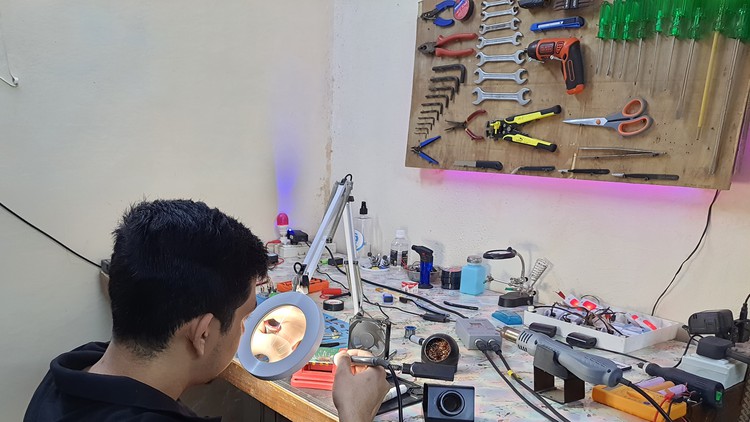
Set up your own electronics workbench with the tools and equipment according to your budget and learn how to use them.
What you will learn
Learn about the basic tools and equipment required to set up an electronics workbench
Decide what tools and equpment are best suited for your use case and budget
Learn how to use hand tools and equipments in depth
Learn how to use test equipments like the multimeters & oscillocopes
Description
First and foremost, an electronics workbench is a place that you have specifically organized in a way that increases your efficiency and makes the process of working with electronics enjoyable, It is where your tools, components, and instruments are.
If you are at the point of beginning your electronics journey, it is hard to tell what tools and equipment are essential to begin and even for the same equipment, there exist many variants for different budget ranges and with different features. I will help you choose the right tools and equipment that give the most value for money.
This course contains a demo of many tools and equipment for different budget ranges so you can choose what’s best suited for you. You can start by buying some basic equipment that is essential for any kind of electronics work and as you gain experience you can decide what other tools you will require and obtain them accordingly.
In each lecture, I will present a specific topic and try to demonstrate the use of a tool or equipment. Through these lectures, I wish to help you gain a working understanding of what these tools and equipment are designed for and how to use them to make your circuits.